To get a little break from politics, we surveyed the office to get a glimpse into what everyone has been reading lately. If you’re in need of a new book to wrap up your summer, or if you haven’t seriously turned a page since school, we have a wide range of interesting fiction and nonfiction for your perusal. Rick Atkinson and Tom Wolfe were perhaps a given for this crowd … but there were some unexpected titles that we hope you’ll check out (looking at you, McCormack). We hope you enjoy one or a few of these recommendations, and if you don’t … well, we may have outnerded the nerds on this one.
Editorial Staff
- Jonah “The Destroyer” Goldberg: A Short History of Nearly Everything by Bill Bryson
Bryson does an amazing job of covering the history of, well, everything. Of course, when he says “everything” he doesn't mean the evolution of Green Lantern into a brutish loser, the fax machine, or pinball machines. He means the universe, the solar system, the Earth, and all the living things on it. (I know way too much about bacteria and mites now. People who compulsively wash their hands should be cautioned that this book will intensify their neurosis.)
It’s not just an explanation of what we know (which, on the subject of physics and a couple other things, he’s forgivably out of date on a couple small-ish details), but how we know it. In short, it elides between an accounting of what we know, but also how we know it. One of the things I am fascinated by is the way human nature—ego, ambition, politics, religion—intrudes on the scientific enterprise. Bryson offers fantastic, evocative profiles and vignettes on the scientists, explorers, technicians, and businessmen who helped demystify the natural world. He also explains extremely complicated processes—climate, tectonics, the Big Bang—in accessible ways. Note: I mostly listened to the audio version, which, unlike way too many audiobooks, is extremely well-done and entertainingly presented. The fun of Bryson’s prose comes through.
- Steve Hayes: Slow Productivity: The Lost Art of Accomplishment Without Burnout by Cal Newport
Ok, I'll admit this is almost certainly a less sexy pick than the ones made by my colleagues. But it’s an honest choice. Newport, a Georgetown professor who authored the wildly popular Deep Work, methodically and convincingly makes the case for stripping away the unproductive and often unnecessary tasks we consider “work,” in favor of more meaningful and important labor. Full of examples both historical and contemporaneous, Newport builds a thoughtful and entertaining argument for focus—for doing good work by doing less.
- Michael Reneau: The British Are Coming: The War for America, Lexington to Princeton, 1775-1777 by Rick Atkinson
There are plenty of books on the American Revolution in the marketplace, but Atkinson is a master researcher who knows the value of picking both interesting and salient details for his prose. Plenty of historians write well, and plenty of writers tell history well. Atkinson is a master of both.
- Rachael Larimore: The Wager: A Tale of Shipwreck, Mutiny and Murder by David Grann
No spoilers here, as I'm still working my way through it, but Grann tells the story of a British vessel that wrecked while chasing a Spanish galleon loaded with gold in 1741. In early 1742, 30 members of the crew, emaciated and near death, arrived in Brazil and were treated as heroic survivors. Until, at least, a separate vessel with just three of the Wager's survivors landed in Chile months later and told a tale of mutiny by their comrades. It’s high drama on the high seas, but also a deep—and unsettling—reminder of the darkest aspects of 18th-century imperialism.
- Wendy Lane Cook: The Catch by Mick Herron
This novella unexpectedly relates to a current political topic, but to say more would spoil the surprise.
- Sarah Isgur: Everything Is Tuberculosis: The History and Persistence of Our Deadliest Infection by John Green
Short, fun—if reading about a disease that kills a million people a year can be—read.
- Michael Warren: And a Bottle of Rum: A History of the New World in Ten Cocktails by Wayne Curtis
This is an informative history of rum that Curtis cleverly ties in with a brief history of the New World, from the first European colonists to the modern-day cocktail revolution. I learned something about rum but also about our culture or shared history in every chapter.
- John McCormack: Little Blue Truck by Alice Schertle
It’s the story of a little blue truck who is beloved by all the barnyard animals and teaches a big, self-important dump truck a thing or two about the importance of friendship.
While I generally favor the classics—such as Goodnight Moon, The Snowy Day, and Caps for Sale—Little Blue Truck stands out as perhaps the best little kids’ book that didn’t exist when I was a little kid.
My daughter, who is now almost 10 months old, is particularly fond of my sheep and goat noises.
- David Drucker: The Ghost at the Feast: America and the Collapse of World Order 1900-1941 by Robert Kagan
I'm fascinated by foreign policy and American history, and this book is a good window into the rise of the U.S. as the globe's preeminent superpower.
- Charlotte Lawson: Fever Beach by Carl Hiaasen
As a new resident of Florida, I thoroughly enjoyed Carl Hiaasen’s Fever Beach as an introduction to the many eccentricities of the Sunshine State. Set in the Trump era, the novel features a colorful cast of corrupt city councilmen, white supremacists, millionaire environmentalists, and one shady politician who may or may not resemble a certain former Republican congressman from Florida’s 1st District.
- Valerie Pavilonis: Brideshead Revisited by Evelyn Waugh
Good ass prose, and there's nothing like young English heirs getting into trouble. I was a little miffed that it seemed light on the Catholicism—I read it because I'd heard it was a “Catholic book”—but the ending bit made up for that. Excuse me while I sit with my head in my hands for a while.
- Victoria Holmes: They Flew: A History of the Impossible by Carlos Eire
Currently reading, not yet finished, but it's a pretty easy read. It talks about the rise of the “impossible” as people tried “reasoning” and downplaying miracles. If you're Christian, it's a fun read that can reignite a fire for your faith.
- Alex Demas: The Right Stuff by Tom Wolfe
I've been on a “New Journalism” kick this summer and just revisited Tom Wolfe's The Right Stuff, which follows the men selected for NASA's first human spaceflight program, Project Mercury.
On its face, the book is a well-reported history of the Mercury astronauts as they progress through the elite and exclusive ranks of military test pilots to the eventual heights of space. But on a deeper level, Wolfe is engaged in a character study of the type of person who would volunteer to sit atop an 80-foot rocket as 45 tons of highly combustible fuel propels them through the atmosphere. The story strikes a healthy balance between entertaining and informative, and Wolfe's prose manages to be both memorable and punchy without slipping too far into self-indulgence.
If you're looking for a fun end-of-summer read, The Right Stuff offers some high-velocity thrill from the low-altitude comfort of a beach chair.
- James P. Sutton: The Fate of the Day: The War for America, Fort Ticonderoga to Charleston, 1777-1780 by Rick Atkinson
The second installment in Rick Atkinson's trilogy about the Revolution came out earlier this year, and it's a masterpiece of narrative military history. Atkinson is an expert in quick character sketches, illuminating natural detail, and impressively anchored descriptions of the battles of the Revolution—he doesn't skimp on the bloody details of 18th-century combat. I would say the book is a perfect beach read, except it's not out in paperback yet.
- Cole Murphy: Bonfire of the Vanities by Tom Wolfe
A super popular one that I never got to, and it’s one of the only Wolfe writings I’ve read other than Radical Chic and one or two other essays. I really enjoyed it. Incredibly readable, interesting characters, and social commentary that aged better than I expected.
- Ross Anderson: Baddest Man: The Making of Mike Tyson by Mark Kriegel
Most biographers write in a dry, neutral style. Kriegel doesn't. His prose is loose, personable, and fun; he injects himself into the story with exactly the right frequency (providing broader context without being annoyingly self-obsessed); and the whole book has a tense narrative flow to it, reading like great pulp fiction. It’s also the rare biography that neither deifies nor demonizes its subject: Tyson is intelligent, reflective, wounded, admirable, brutal, vicious, and vile; victim and abuser, simultaneously. It covers only the first half of the story, ending in 1988, but it's not only the best book I've read this year, it’s my favorite biography since Barry Gewen's The Inevitability of Tragedy. I recommend it even if you're not interested in boxing (or have already read Tyson's Undisputed Truth), and I can't wait for the second volume.
- Amy Howe (SCOTUSblog): King: A Life by Jonathan Eig
It provides a full portrait of Martin Luther King Jr. as a civil rights giant but also as a complicated human. I also learned so much that I didn't know about the civil rights movement more generally.
- Zachary Shemtob (SCOTUSblog): Caesar and Christ by Will Durant
The haters criticize Will and Ariel Durant for being mere “popularizers” of history and dismiss their work as outdated. Sure, there's some truth to that (the attempt to connect every historical dot doesn't always quite work). But Caesar and Christ is not only fantastically written; 80 years after its publication, it also manages to provide a refreshing narrative on what many consider the most important tale ever told.
- Kelsey Dallas (SCOTUSblog): Second Life: Having a Child in the Digital Age by Amanda Hess
I became a mom five years ago, but I'm still grappling with whether the apps and gadgets I used to prepare for and then track my pregnancy and the hazy newborn days helped me or hurt me. This thought-provoking book helped me sort through my complicated emotions.
Business Team
- James Scimecca: Richard Nixon: The Life by John A. Farrell
Nixon is a fascinating character to study, and Farrell does a great job humanizing all the characters. Honestly, this is a great scandalous summer read—and I'm still only in Nixon's Senate tenure.
- Campbell Rawlins: Filterworld: How Algorithms Flattened Culture by Kyle Chayka
If you've ever felt like your digital life is starting to look, sound, and feel the same—across Spotify playlists, Instagram feeds, Netflix recommendations, and even coffee shops—Filterworld is essential reading. Kyle Chayka peels back the algorithmic curtain to explore how personalization is shaping not just what we consume, but who we become. With sharp insight and accessible storytelling, he guides readers through a culture increasingly curated by invisible forces. Filterworld is a timely and provocative look at the cost of convenience—and a reminder of the value in resisting the algorithm’s grip.
Interns (Have you made it this far?)
- Angela Niederberger: The Travels of Jaimie McPheeters by Robert Lewis Taylor
An adventure West in 1849, based on letters the author found of a father and son traveling to California for the gold rush. Taylor crafts a beautiful story with characters that stick with you. A classic tale of the journey meaning far more than the destination and a good reminder of what is important in life.
- Rilla Haverdink: Everything Sad Is Untrue (a true story) by Daniel Nayeri
It makes a true, sensational refugee story realistic. In other words, this Iranian kid's Persian folklore, posh past life in Isfahan, homelessness in Dubai, and tornado experience in Oklahoma become relatable to me, my grandma, my aunt, and my friend in Minnesota. None of us are immigrants, Persian, or have abusive stepfathers, and yet, Daniel's story resonated with each of us.
- Evan Spear: Slouching Towards Bethlehem by Joan Didion
An amazing portrait of the American West in the ’60s, and the hippie movement.
- Maggie McGinnis: Where Have All the Democrats Gone?: The Soul of the Party in the Age of Extremes by John B. Judis and Ruy Teixeira
Where Have All the Democrats Gone? offers one of the clearest explanations I’ve read of the urban-rural divide—and how the party lost touch with voters it once claimed to represent. It’s especially sharp on the erosion of economic populism and the cultural shifts that alienated working-class communities. Judis and Teixeira pull from decades of electoral history, labor politics, and social trends without ever getting bogged down in jargon.
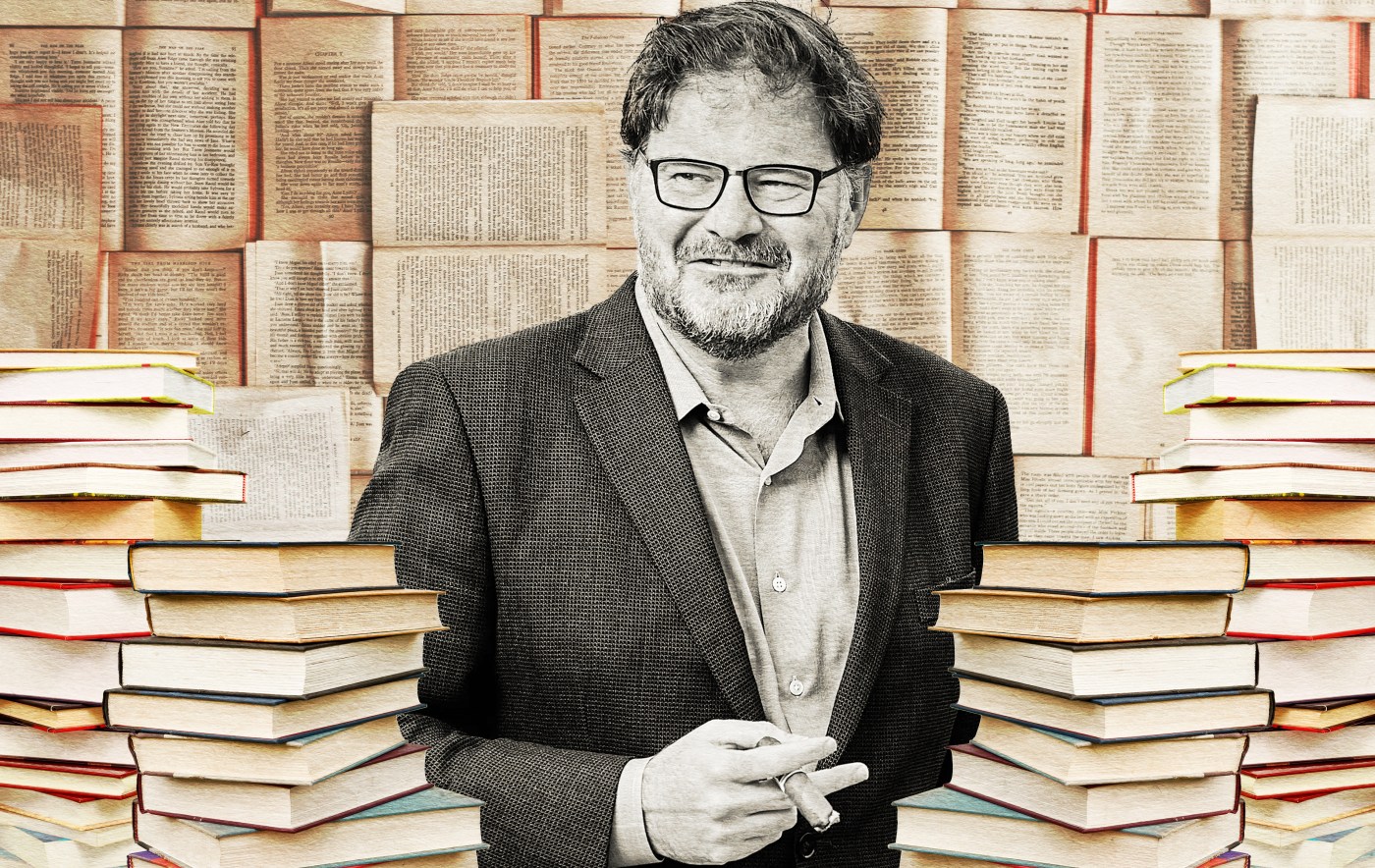

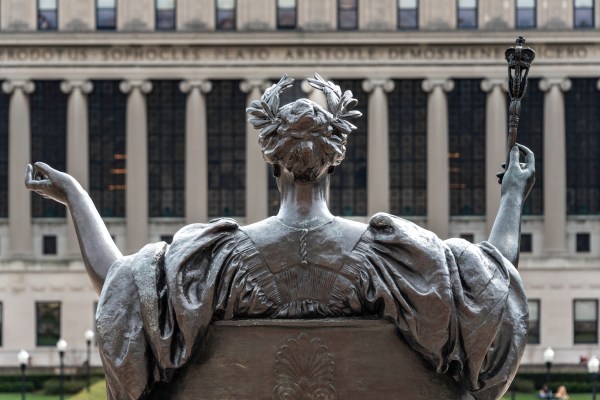
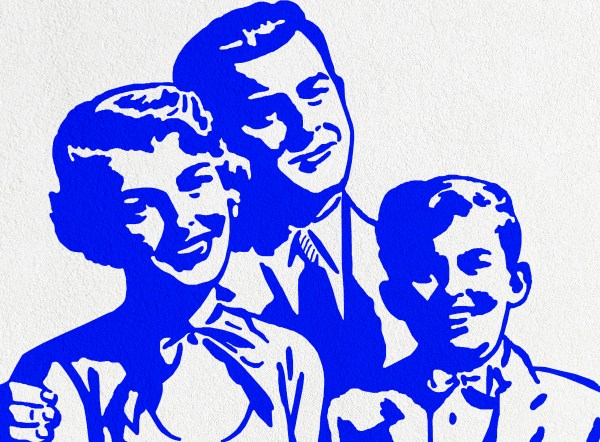
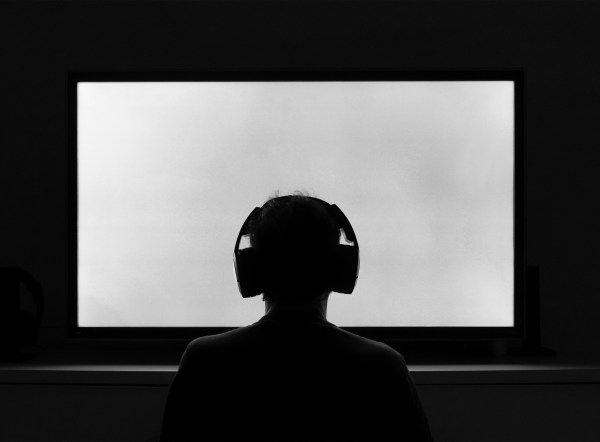
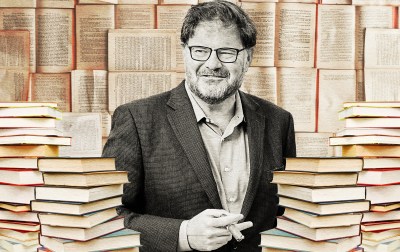
Please note that we at The Dispatch hold ourselves, our work, and our commenters to a higher standard than other places on the internet. We welcome comments that foster genuine debate or discussion—including comments critical of us or our work—but responses that include ad hominem attacks on fellow Dispatch members or are intended to stoke fear and anger may be moderated.
With your membership, you only have the ability to comment on The Morning Dispatch articles. Consider upgrading to join the conversation everywhere.